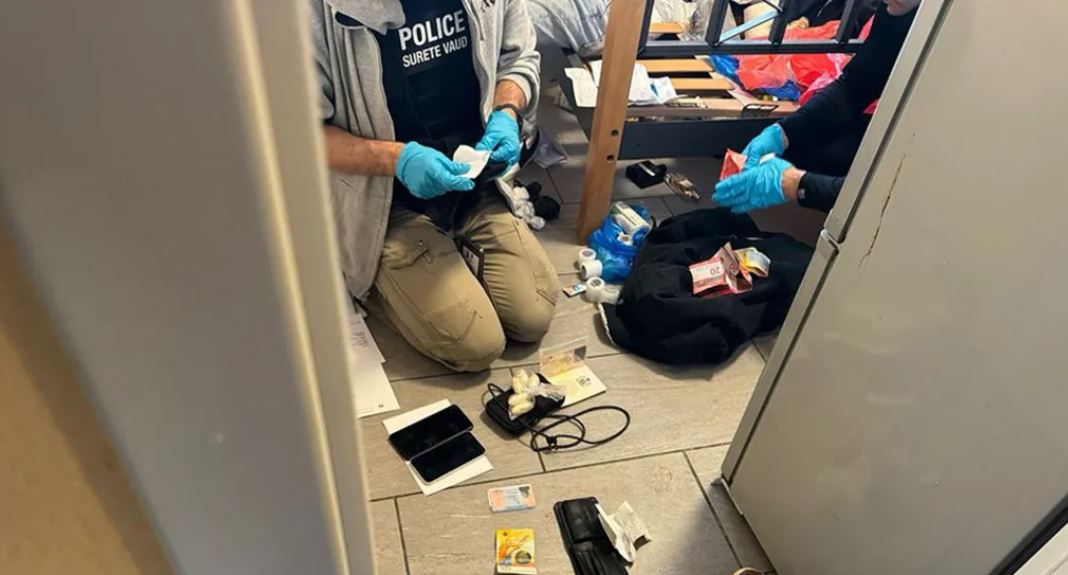
Interpol Dismantles West African Black Axe Cybercrime Syndicate in Massive Operation
Interpol has recently achieved a significant victory against one of West Africa’s most notorious criminal networks, Black Axe, along with its associated groups. The International Criminal Police Organisation apprehended over 300 individuals connected to this high-profile cybercrime syndicate in a series of undercover operations collectively known as “Operation Jackal III.” This operation spanned 21 countries from April to July 2024 and revealed the extensive reach and technological prowess of Black Axe, marking a major setback for the network.
According to a report by BBC on Wednesday, Operation Jackal III was a meticulously coordinated effort aimed at dismantling a criminal organization responsible for some of the most sophisticated cyber-enabled financial frauds globally, among other serious crimes. Interpol described the operation as a “substantial blow” to the Nigerian crime network but also highlighted the group’s extensive global influence and advanced technological capabilities, underscoring Black Axe’s status as an international threat.
The operation led to the confiscation of approximately $3 million in illegal assets and the freezing of over 700 bank accounts. Tomonobu Kaya, a senior official at Interpol’s Financial Crime and Anti-Corruption Centre, emphasized the role of financial technology and cryptocurrency in facilitating these cybercriminal activities. Kaya remarked, “These criminal syndicates are highly organized and structured, and they are among the first to adopt new technologies. The advancements in fintech make it easier for them to transfer money illicitly across the globe.”

Black Axe is a clandestine criminal network engaged in trafficking, prostitution, and violent operations worldwide, with cybercrime being its primary revenue source. The report highlighted that many members of Black Axe are well-educated, having been recruited into the organization during their university years.
An Interpol report from 2022 stated, “Black Axe and similar groups are responsible for a significant proportion of global cyber-enabled financial frauds and other serious crimes.” Since 2022, multiple “Jackal” operations have been conducted, resulting in the arrest of numerous Black Axe members and the seizure of their electronic devices.
In 2017, Canadian authorities uncovered a massive money-laundering scheme linked to Black Axe, valued at over $5 billion (£3.8 billion). Handling such sophisticated criminal operations demands high-level technological expertise and resources. Interpol has introduced the Global Rapid Intervention of Payments system, which allows authorities in its 196 member countries to freeze bank accounts globally with unprecedented efficiency. This system was instrumental in stopping a $40 million scam targeting a Singaporean business in July 2024.
Kaya explained, “Gathering and analyzing data from various countries is crucial to understanding their methods. By compiling this information, we can take more effective action against these syndicates.”
Dr. Oluwole Ojewale, the West Africa Regional Coordinator at the Institute for Security Studies, criticized the Nigerian government for its perceived inadequacy in addressing criminal groups like Black Axe. He also accused politicians of exploiting members of these syndicates for their own benefit, providing them with resources to commit fraud and other crimes. Ojewale stated, “The failure of governance has pushed people into joining groups like Black Axe. Politicians are arming these individuals for their own gain.”
Ojewale argued that prevention should be prioritized over direct operations against these criminal organizations. President Bola Tinubu, in February 2024, pledged to enhance the capabilities of the Economic and Financial Crimes Commission to combat digital offenses more effectively. He also condemned the unfair labeling of Nigeria as a country plagued by cybercrime and corruption.

In November 2023, the Nigerian Senate raised concerns about an annual loss of $500 million due to cybercrime. They warned that without proper funding for the national cybersecurity program, the benefits of the digital economy could be jeopardized.
The origins of Interpol’s Jackal Operations trace back to Ireland. In 2020, the Garda National Economic Crime Bureau identified 1,000 individuals connected to Black Axe and arrested several members, uncovering a much larger network. Detective Superintendent Michael Cryan, who led the operation, noted a significant increase in money laundering activities linked to Black Axe. He said, “The scale of money laundering through Ireland was enormous. Bank robberies are now conducted using computers, reflecting a level of sophistication that surpasses traditional crime.”
Cryan estimated that €200 million ($220 million; £170 million) had been stolen online in Ireland over the past five years, representing only 20% of the cybercrimes believed to be reported. During one operation, more than €1 million in cryptocurrency assets were also seized.
Photo Credit: BBC




Add comment